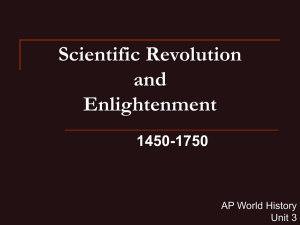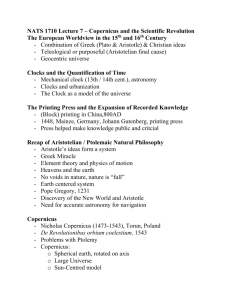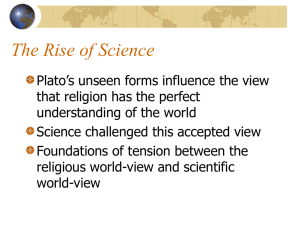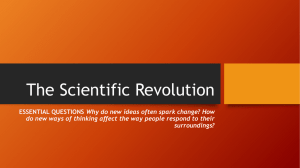The Scientific Revolution
advertisement
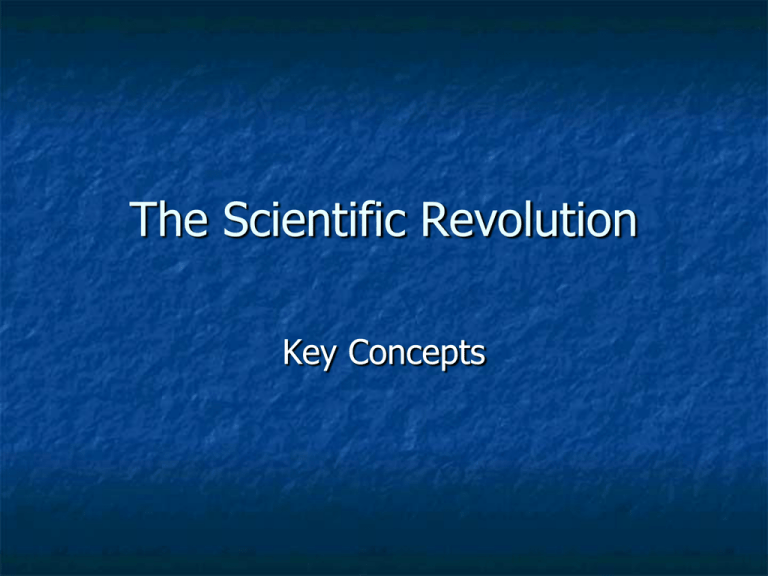
The Scientific Revolution Key Concepts I. The Aristotelian Universe Based on Ptolemy, Aristotle, and Plato Christianized 347 B.C. – 168 A.D. Earth = Living, Protected Sphere Views accepted because they were what people saw in nature II. Scientific “Revolutionaries” A. Copernicus (1473-1543) Pro-Church Sun-centered universe Wanted to glorify God Heliocentric theory Challenged circular orbits On the Revolutions of the Heavenly Spheres (1543) Presents his theories B. Tycho Brahe (1546-1601) Most sophisticated observatory of his day Remained an Aristotelian Discovered comet shooting right through crystalline spheres Not a phenomenon C. Johannes Kepler (1571-1630) Student of Brahe Planetary motion conforms to mathematical formula Elliptical orbits Planets do not move at the same speeds D. Galileo Galilei (1564-1642) Early practitioner of the experimental method Mathematical formula for acceleration of falling objects Law of inertia Perfected the telescope Used in his discoveries Confirmed Copernicus’ theory Challenges old philosophers Put on trial by the Church E. Isaac Newton (1642-1727) Discovers Gravity Invents Calculus Universe governed by natural laws Laws of Motion 1st – Inertia 2nd - Force and Mass 3rd – Action/Reaction Principia; Mathematical Principles of Natural Philosophy (1687) F. Francis Bacon (1561-1626) The Inductive Method Premises provide strong evidence for the conclusion Probable, but not absolute Emphasis on practical, useful knowledge G. Rene Descartes (1596-1650) The Deductive Method Starts with a hypothesis that is tested to reach a conclusion Proof is absolute Father of “analytical geometry” III. Causes of the Scientific Revolution Medieval Intellectual Life The Italian Renaissance Renewed emphasis on mathematics Renaissance system of patronage Rulers support research and arts Navigational problems of long sea voyages Better scientific instruments IV. Consequences of the Scientific Revolution Rise of the “Scientific Community” Academy of Royal Sciences (1666) The modern scientific method A universe ordered according to natural laws and logic Royal Society of London (1662) IV. Consequences of the Scientific Revolution (cont) Laws discovered by human reason Mechanical View of the Universe Works like a clock Demystified Deistic View of God God created the world and stepped back as an observer
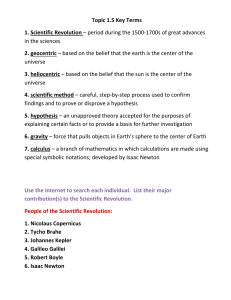
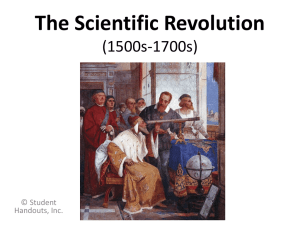
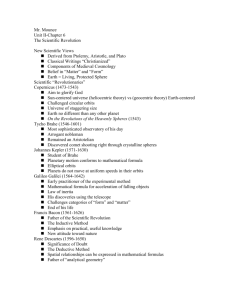
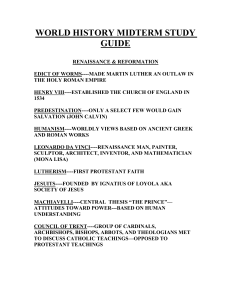
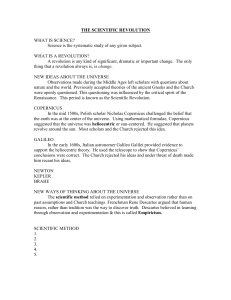
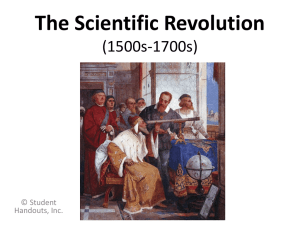
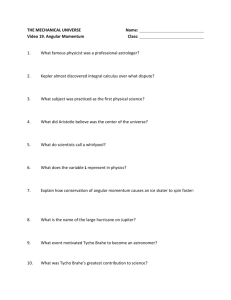
![Galilei, Galileo (1564 - 1642) [The universe] cannot be read until we](http://s2.studylib.net/store/data/005476024_1-9df318dde86b612540035c06a638f94c-300x300.png)
